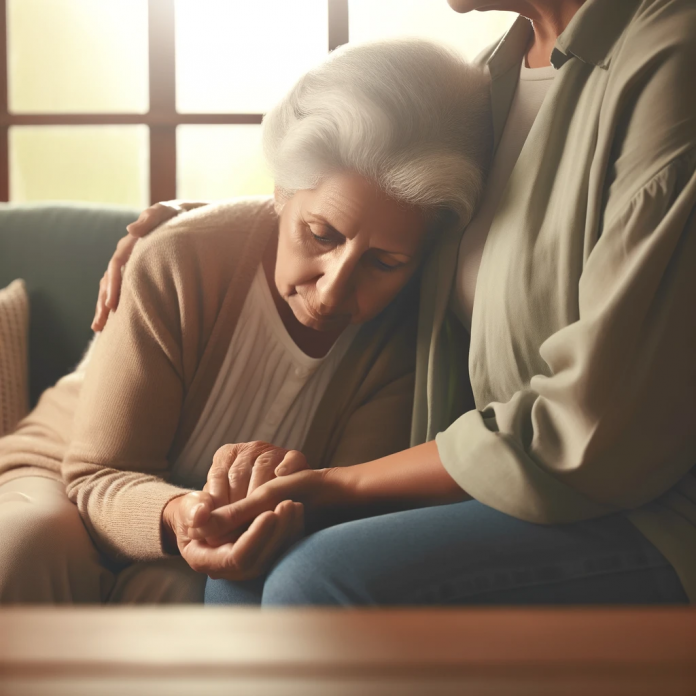Dealing with grief is a challenging process at any age. However, for the elderly, it can be an especially difficult journey. The loss of a spouse, a lifelong friend, or even a child can be a profound and life-altering experience. This article aims to provide a comprehensive guide on the special considerations needed when providing grief support for the elderly.
Understanding Grief in the Elderly
Before diving into the specifics of grief support for the elderly, it's essential to understand how grief manifests in this age group. Grief can often be more complex for older adults due to a variety of factors, including physical health, mental health, and social circumstances.
Physical health can significantly impact an elderly person's ability to cope with grief. Chronic illnesses, mobility issues, and other health problems can exacerbate feelings of loss and isolation. It's crucial to consider these factors when providing grief support.
Mental health is another critical factor. Older adults may already be dealing with mental health issues such as depression or anxiety, which can intensify feelings of grief. Furthermore, the loss of a loved one can trigger new mental health problems.
Role of Social Circumstances
Social circumstances play a significant role in how the elderly experience grief. Many older adults may have a smaller social network due to the loss of friends and family members over the years. This can lead to feelings of loneliness and isolation, which can complicate the grieving process.
On the other hand, some elderly individuals may have a robust social network but may feel uncomfortable expressing their grief to others. This can lead to feelings of isolation, even in the midst of a supportive community.
Providing Effective Grief Support
Now that we have a better understanding of the factors that can influence grief in the elderly, let's explore some strategies for providing effective grief support.
Encouraging Open Communication
One of the most important aspects of grief support is encouraging open communication. Many older adults may feel hesitant to express their feelings of grief, either because they don't want to burden others or because they feel they should be able to handle their feelings on their own.
It's crucial to create a safe and non-judgmental space where the elderly can express their feelings freely. This can be achieved through one-on-one conversations, group therapy sessions, or even through writing or art therapy.
Providing Practical Support
Practical support can be just as important as emotional support when it comes to grief. This can include helping with daily tasks such as cooking, cleaning, or running errands. It can also involve helping the elderly person navigate the legal and financial aspects of their loved one's death.
Providing this type of support can help alleviate some of the stress and anxiety that often accompanies grief. It can also demonstrate to the elderly person that they are not alone and that there are people who care about their well-being.
Special Considerations for Grief Support
While the strategies mentioned above can be effective in providing grief support for the elderly, there are some special considerations to keep in mind.
Understanding the Impact of Multiple Losses
One unique aspect of grief in the elderly is the potential for multiple losses. Older adults may have experienced the death of several friends or family members over a short period. This can lead to a sense of cumulative grief, which can be overwhelming and difficult to cope with.
It's important to acknowledge the impact of these multiple losses and to provide support that addresses this unique aspect of grief. This might involve helping the elderly person find ways to honor and remember each individual they've lost, or providing extra emotional support during times of additional loss.
Addressing Fears About Death and Dying
Another special consideration when providing grief support for the elderly is addressing fears about death and dying. Many older adults may have anxieties about their own mortality, especially after the death of a loved one.
It's important to create a safe space where these fears can be discussed openly. This might involve providing information about end-of-life care options, discussing spiritual beliefs about death, or simply listening and providing reassurance.
Conclusion
Grief support for the elderly requires a compassionate and understanding approach. By taking into account the unique challenges and considerations that older adults face, we can provide more effective and meaningful support. Whether it's through open communication, practical assistance, or addressing fears about death, every effort made can make a significant difference in the life of a grieving elderly individual.


-banner.png)





